Fri, 30 April 2021
This show is all about helping you find a way to achieve the farming or ranching dream that you have. In today's episode, we are going to illustrate the single most important way to make this happen. Cody Bumgarner is an enterprising young man who is building up a significant bison herd and bison meat business right in my backyard called "Idaho Bison". Cody is raising his buffalo just about 40 miles away from my farm, near New Plymouth, Idaho. Getting into the bison business is not easy. Bison are expensive, and they take a long time for you to start generating revenue from them. In addition to that, they require special handling facilities because of their size and their wild nature. Plus, if you are looking for an operating loan you might not be able to get one because bankers don't like bison herds as collateral because they are too difficult to sell. Cody was exposed to the bison business by one of his friends, and when he saw how valuable the cuts of meat were he decided that he wanted in. His friend agreed to allow him to build his herd within his already existing herd and on the property that had the vital infrastructure in place already. All that was left for Cody to do was to start buying buffalo. Buffalo are expensive, and this expense could have killed the motivation of a lot of people. However, Cody's motivation is strong and his priority is developing a profitable farm business. So, he went to Alaska. That may sound funny, but for two years Cody went and worked underground on a drill rig in a gold mine in Alaska. This was as a high-paying job that he could get, and he took advantage of the opportunity to send money home and have it invested in his herd of buffalo. Today, Cody has developed a significant herd, partnered with two other producers, and started marketing bison meat. They are selling more and more all the time, and he is well on his way to achieving this goal. Cody is a great example of how to get started farming today. Networking, partnering with the right people, bringing value to those partnerships, prioritizing farming and hard work is what will get you there. Cody is what we call "proof of concept".
|
Thu, 29 April 2021
SHOW NOTESAre you looking for your niche in agriculture? Do you wish you could farm but not have to work outside during the cold and windy winters? Would you like to provide food directly to people but also for livestock? If so, today's episode is for you. On today's show, we discuss the emerging market of mealworms for human and animal consumption with Cheryl Powers of Jord Producers. Cheryl knew she wanted to return to agriculture, but she defined a set of parameters before deciding what she would do. Between defining how she wanted to farm and what she wanted her business to accomplish she discovered mealworm production. Now Cheryl is identifying new markets, producing brood worms, and has team members helping her to grow this business. If you are looking for your niche, this episode is for you! ADVICE FROM CHERYL: SKILLS: Look for team members that have skills that you lack. They need to compliment you in this way. HELP: Find help in your community in developing businesses. Then take full advantage. INTERVIEW: Interview potential customers as you are developing your idea. This will help you know whether or not it is viable, and how to pivot your business. BEST BUSINESS ADVICE CHERYL HAS RECEIVED: DELIVER: You better be able to deliver what you promise. Don't be just another company that makes big claims but cannot follow through. RESOURCES: The Lean LaunchPad by Steve Blank CONTACT INFORMATION AND LINKS: Facebook: LINK Email: LINK Telephone: 402-469-0038
Direct download: OFI_1058_-_Replay_Cheryl_Powers_Mixdown_1.mp3
Category:farming -- posted at: 12:30am MDT |
Wed, 28 April 2021
SHOW NOTES:I had an interesting transition from community college to a four-year university in 1993. My first three semesters of college were spent in Modesto at Modesto Junior College studying animal science. During that time I was living at home, working full-time, and then working as much as I could at my step-father's farm in my free time. I was busy, but it was working. I had a 3.5 GPA, and I was on the Dean's List. I was performing at a high level. Then I transferred to Montana State University, didn't have a job, joined the club baseball team, and lived in the dorm. I had my first ever semester in which I did not achieve at least a 3.0, and my first ever semester achieving below a 2.0. I was almost immediately placed on academic probation. I continued to get poor grades for about a year. Then I hit pause on college, got residency in Montana, and started paying for college myself. Once I was back to more of a stressful lifestyle with harder classes, a heavier class load, full-time work, rent and tuition to pay, etc. I saw my grades creep back up. It became clear to me that I was left to create my own structure because of free time I was not nearly as familiar as if I were forced to create structure due to being busy. If I only had 90 minutes in a week to work on an assignment, I would concentrate intently on that assignment and do a better job. If I had copious amounts of free time, I would wonder where all the time went, and I would do poorly. For years I thought I was all alone, but today I interviewed Anna Webel. Anna is just finishing up her sophomore year in high school, but she has already discovered this about herself. She keeps herself incredibly busy playing sports in all three seasons, serving as an officer in the FFA chapter, raising cattle at home, and showing cattle at different shows around Illinois and beyond. She is achieving at a high level in all of these areas, and she credits the need to have structure to be able to participate in everything that interests her. Without it, she knows that she would have to give something up, and that drives her to maximize her performance in everything she does when she gets the opportunity to work on it. |
Tue, 27 April 2021
Direct download: OFI_1056__Big_To_Small_-_My_Journey_In_The_FFA.mp3
Category:general -- posted at: 12:30am MDT |
Mon, 26 April 2021
A word that is probably overused in entrepreneurial circles these days is "pivot". However, like all overused words, it has a good meaning. If you are not familiar, when somebody talks about pivoting in business it means being flexible enough to change direction as circumstances dictate so that you can find business success. Our guest today did just that, and it has led her into a real opportunity for business success as she rounds out the latter half of her high school FFA experience. Kailea Tilton is currently a sophomore at Seneca High School in Louisville, Kentucky. During her freshman year of high school, when trying to come up with a supervised agricultural experience, she decided that she would get a rabbit and teach it how to do tricks as part of a livestock SAE. She tried everything she could think of, month after month, and she could never get the rabbit to do what she wanted. So, she had a decision to make - start completely over or rework what she had already begun. Kailea decided to pivot. She knew that she liked to bake, and she knew that she liked her rabbit and her other pets. She decided to explore baking treats for her pets and the pets of other people. She was sticking with a form of her original project, searching for success. At this point "Hershel's Bakery" was born, and she started creating treats and testing how well they were received on pets around her neighborhood. It wasn't long until she knew that she was onto something. At that point, Kailea leveraged her mom's Facebook profile and posted a flyer announcing her business and treats. In no time at all, she had over 100 orders and was well on her way. Kailea got started with the help of a $500 grant from the Kentucky FFA Foundation. This was pivotal in helping her to purchase ingredients. She is now looking ahead to applying for more SAE grants and growing her business even larger. She has determined that she likes working for herself and sees entrepreneurship as a part of her future. |
Sat, 24 April 2021
Direct download: OFI_1054__Volunteering_To_Choose_Between_The_Lessor_Of_Two_Evils___Rural_Crime_Edition.mp3
Category:general -- posted at: 12:30am MDT |
Fri, 23 April 2021
Any of you who have been listening to this show for some time know how we find our guests for Friday episodes. Generally, we comb through Craigslist ads looking for somebody with an agricultural business, and then we reach out to them to see if they will be on the show. About two weeks ago my producer, Elliot, was doing this very thing when he came across an ad in Wyoming for grass hay, horse grazing, and horse boarding. He sent an email to the author of that ad asking him if he would like to be a guest on the show. The answer was yes, and it turned out that Elliot had opened up an oyster that contained a pearl. Elliot had reached Reid Lance Rosenthal. Not only was Reid the author of that Craigslist ad, but he is the author of many, many books, a rancher, a radio host, a real estate investor, and a broker as well as a public speaker. Reid is the author of the "Threads West" series of books including notable titles such as Maps Of Fate and Moccasin Track. So, what was going to be an interview about side businesses in agriculture turned into an interview about books, ranches, writing methods, and favorite writers. I had a great conversation with Reid, and I think you are going to really enjoy hearing this discussion. I know I enjoyed having it! Connect with Reid Lance Rosenthal
|
Thu, 22 April 2021
SHOW NOTESINTRODUCING ANNA LINK!As an entrepreneur, I really appreciate people who go out and seize opportunities. Actually, people who create their own opportunities are the ones that impress me most of all. Our guest today, Anna Link, did just that, and that is how she wound up being on this show. Anna reached out to me and another agricultural podcast host, Rob Sharkey, on Twitter and requested to be a podcast guest. I had her send me an email and let me know what she has been doing in the FFA, and it was a no-brainer. I booked her on the show right away. Creating her own opportunities seems to be a character trait of Anna's, as requesting to be a guest on this show is certainly not the only time that she has done this. Anna raises Hereford hogs, and she does so because they are so underrepresented in the show pig world. But she did not stop there. She started a Facebook group for people with Hereford hogs in Missouri. That group has grown and now has spread across state lines. Anna also took the initiative to be part of the 4H as well as the FFA, as her parents were not pushing her to go that direction, she lives in town and does not have a farm. Those efforts have led her in a good direction though, and she found herself serving as her chapter's president as well as her area's reporter. Enjoy this episode with this exciting young student.
Direct download: OFI_1052__Blazing_Her_Own_Trail_And_Making_It_Happen___Replay_with_Anna_Link___FFA_SAE_Edition___Moberly_High_School_FFA.mp3
Category:FFA -- posted at: 12:30am MDT |
Wed, 21 April 2021
INTRODUCING JAYLA WASHINGTON: It is always difficult to quantify what I love about interviewing FFA students the most. Each time I try I do come back to a common theme, and that is that the projects these students take on are all vision and almost no mitigation due to real-world realities. As adults when we start a project or business we have to do it within certain confines. We still need to make the mortgage payment, we don't want to lose our life savings that are in the 401K, we have to keep enough time in our schedule to be a good spouse or parent, etc., etc. These realities of adulthood can really scale back a project or even make it seem unworkable. With FFA students they just aren't subject to these things, and they can let their imaginations run wild. Normally, by the time I have found out about them and invited them to be on the show, these ideas have turned into something wonderful. That is definitely the case with today's guest, Jayla Washington. Jayla is in her third year of the FFA at Lowcountry Leadership Charter School in Hollywood, South Carolina. Prior to entering the FFA Jayla had been observing her grandfather's efforts to serve their community by growing vegetables and donating them to people in need in the surrounding community. Of course, one of the major aspects of the FFA is service, so when Jayla became a member this seemed like a natural fit for her. Thus began "Produce For All", which is Jayla's non-profit operation to provide organic, fresh, and healthy food into a local food desert in her area. This started out with her networking with food banks to get food into these areas, but it has grown. As of our interview, Jayla has been awarded a $1,000 SAE grant two years in a row. The first year from the CCOF in Santa Cruz, California, and Bob Evans Farms this year. Both of these grants have enabled her to expand her operation with equipment so she can produce even more organic produce to donate into her local food desert.
Jayla definitely has a vision. She is a junior in high school right now, and one of the things she wants to do with this project before she graduates is turned it into a placement SAE for another FFA student. She is planning on going to college in Alabama to study horticulture, and she wants somebody to continue to run this non-profit while she is away. So at the same time that she is keeping organic produce flowing into an area where it is really needed she will be creating an SAE opportunity for another student. Brilliant! Jayla has discovered a career path that will help her to aid other people in need through being a horticultural therapist. This was the first time that I had ever heard of this profession, but she explained to me how it works. She is completely dedicated to service, and it is wonderful to see where is going to take this. Connect with Jayla's Local Farm on Instagram: https://www.instagram.com/jaylas_local_farm/
Direct download: OFI_1051__Growing_Produce_For_The_Food_Desert___FFA_SAE_Edition___Jayla_Washington___Lowcountry_Leadership_Charter_School.mp3
Category:general -- posted at: 12:30am MDT |
Tue, 20 April 2021
Direct download: OFI_1050__Dont_Put_Off_Today_What_You_Will_Regret_Not_Doing_On_Your_Death_Bed.mp3
Category:general -- posted at: 12:30am MDT |
Mon, 19 April 2021
INTRODUCING BETHANY KELLER: The tagline for the Off-Farm Income Podcast calls agriculture "the ultimate lifestyle business". I have made the argument for why this is true many, many times. One thing that we have never really done is delved deeply into why people are so attracted to this lifestyle. What is it that will make people work twice the hours for half the money just to be part of this group? One answer to that is community. It is the community that we are so fortunate to be part of in agriculture that pulls people in. People in agriculture have old-fashioned values, and one of those old values is helping each other out. I think what keeps that ever-present in agriculture and farming is the fact that any of us can find ourselves in a situation that we cannot get out of ourselves at any moment. The need to call on neighbors or even strangers is always there. Today's interview profiles exactly why we love this community so much. It all starts with Bethany Keller. Bethany is a senior at Newberry High School in Newberry, Florida. She has been in their FFA chapter since middle school. About a year ago Bethany lost her grandfather to cancer. About a month after that she began her 2021 fair project, which was a steer that she was going to show and then sell at her county fair in March of 2021. Like any fair project, there is a lot of work involved, but with a steer, I think there is more. You have to start sooner, your feed cost will be higher, your purchase cost will be higher, you have to halter break, you need bigger equipment to transport a steer - everything is magnified. To get motivated for a project of this scope a student needs to see a reward on the other end. Normally, that reward comes at the auction when you make money off of your steer. This was Bethany's motivation, and this was totally appropriate. But about halfway to the fair Bethany found out that one of her friends had been diagnosed with cancer, and he and his family were facing significant medical bills. Her friend's diagnosis changed everything for Bethany. She decided then and there to forgo what she was going to make from the steer and to donate all the proceeds to help him with the medical bills. He resisted, but she insisted and it was done.
The fair arrived in March, and the night prior to the auction she was taken around the show ring, and a fair representative told her story and what she was doing. The following day at the auction, the auctioneer told the story again. Then the bidding for her steer began. By the time it was all said and done, Bethany's community had bid her steer up to over $16,000. She was able to provide a great donation to her friend and his family through her selflessness and the generosity of her community. That is a community and lifestyle worth making sacrifices to be part of!
Direct download: OFI_1049__The_Reason_We_Love_Our_Agricultural_Community___FFA_SAE_Edition___Bethany_Keller___Newberry_High_School_FFA.mp3
Category:FFA -- posted at: 12:30am MDT |
Sat, 17 April 2021
Direct download: OFI_1048__Tractor_Fraud_On_Ebay___Rural_Crime_Episode.mp3
Category:general -- posted at: 12:30am MDT |
Fri, 16 April 2021
SHOW NOTES Today's Friday episode is a little bit different than normal. There are two major points of value in this episode. First, is the lesson that when you take the step to reach out to others for help or advice you just never know where it will take you. Second, are some practical tips about how to start your own podcast for your own form of off-farm income. The way this all started is that a young lady named Ashley Elsbernd, who is currently a junior at South Winneshiek High School, reached out to Warren Clark of AgPR Media for advice about starting her own podcast to profile the projects and accomplishments of her fellow FFA members. Warren then referred her to me to see if I could help her. Instead of just trading some emails and answering some of her questions, I decided to have Ashley on the show and have her interview me. This forced her to think up questions that she wanted answers to, and it took her way out of her comfort zone. However, by the time it was all said and done, Ashley had completed her first-ever podcast interview, and she had the experience to take her deeper into her project. Oh, and she and any of you who are interested had information that could help you to develop your own podcast as your form of off-farm income. I hope this was both helpful and entertaining for all of you.
Direct download: OFI_1047__What_Can_Happen_When_You_Reach_Out_To_Others_For_Their_Expertise.mp3
Category:farming -- posted at: 12:30am MDT |
Thu, 15 April 2021
SHOW NOTESOne of the mantras of this show is that if you want to farm and to farm successfully you need to be willing to relocate. This has everything to do with land prices and land quality. If you live in an area that has inflated land prices due to land buyers that are not ag-related, your chances of making it and farming full-time decrease because of this increased land payment. I have never had a great answer, only a good one, for how to go about finding the right place outside of your area. There are millions of farmable acres across the United States. How can a person truly go find just the right spot? Fortunately for me, I was connected to Steven Brockshus, the founder of Farm Finder, through the American Farm Bureau Federation. In today's episode, I get to speak with Steven all about this great business and website that he started that is designed to allow anyone to find the perfect piece of farm ground for their interests. This can be done by entering the exact parameters you are looking for, checking the soil types, viewing the sale prices of comparable farms, etc. And, in addition to all of this, I get to profile a wonderful success story of a previous FFA national officer who has taken his time in the FFA to the next level. ADVICE FROM STEVEN: PURPOSE: Know your purpose when you start a venture. It is important to know where you are trying to go in order for you to get there. LIVE: When looking at farm ground it is really important to know whether or not you want to live there. This really influences the decision process and how good of a farm you purchase. FINANCE: Have your financing in order and understand the numbers. Without this, the best farm in the world might still fail. CONTACT INFORMATION: Website: https://www.farmlandfinder.com/ Facebook: https://www.facebook.com/FarmlandFinder Twitter: https://twitter.com/FarmlandFinder Linkedin: https://www.linkedin.com/company/farmlandfinder/ Email: steven@farmlandfinder.com
Direct download: OFI_1046__How_To_Find_The_Perfect_Farm___American_Farm_Bureau_Federations_2019_Rural_Entrepreneur_Of_The_Year___Replay_with_Steven_Brockshus___Farmland_Finder.mp3
Category:farming -- posted at: 12:30am MDT |
Wed, 14 April 2021
INTRODUCING JENNA SPANGLER: Obviously, the reason that I started interviewing FFA students was their involvement in entrepreneurship. The way that the FFA facilitates exposure and learning in entrepreneurship is second to none. And, as the title of this episode suggests it really is an entrepreneurship incubator. That is very apparent in our interview with today's guest, Jenna Spangler. Jenna is a very competitive person, and upon joining the FFA she found that this organization served her competitive spirit very well. Through a myriad of different contests and competitions, she found exactly what she was looking for. Then the day came that she wanted to go on a mission trip and needed to raise $150 to make this happen. Jenna decided that she would make ice cream and sell it to people for the fundraiser and actually pre-sold what she needed to raise. This motivation is what led Jenna to be exposed to business and entrepreneurship. She found herself really enjoying making and selling products to other people and wanting to explore this further. Well, she just happened to be in the FFA already. Of course, this organization not only promotes but rewards entrepreneurship, and she found just the backing and encouragement that she needed. This led her to seek out opportunities outside of the FFA to learn even more about entrepreneurship, and Jenna Lou's Homemade Ice Cream was born.
Visit Jenna Lou's Homemade Ice Cream online here: https://www.facebook.com/jennalous.icecream
Direct download: OFI_1045__The_FFA_As_An_Entrepreneurship_Incubator___FFA_SAE_Edition___Jenna_Spangler___Bushnell-Prairie_City_High_School_FFA.mp3
Category:FFA -- posted at: 12:30am MDT |
Tue, 13 April 2021
Direct download: OFI_1044__When_You_Really_Know_That_Money_Isnt_Everything.mp3
Category:general -- posted at: 12:30am MDT |
Mon, 12 April 2021
INTRODUCING ANNA RIDENOUR: I'll start this post by saying happy birthday to today's guest, Anna Ridenour, as her episode release date is on her 18th birthday! And, that does not happen that often. Anna is the epitome of what can happen to a student when they get involved in the FFA. I have seen more than once that a student who joins the FFA has a passion develop, they develop skills to serve that passion, and they find themselves at a very advanced stage of life development by the time they graduate from high school. In Anna's case, I have a hard time believing that there was ever a time that she did not have all the passion and enthusiasm that she currently has for agriculture, but those things grow over time. Today, Anna is serving in multiple officer positions both at her chapter and regional levels, and she is pursuing a spot on the Minnesota State Officer Team. She and her sister have been developing a sheep and goat business since they were seven years old, and they see great success with this, selling livestock into over half of the states. Anna has her eye fixed on college next and veterinary school after that. She has recognized that as a goat producer herself, her Minnesota region does not have many veterinarians with significant knowledge about goats. Since this is her passion and wants to serve her community, she sees herself filling this void as a large animal vet. There are a lot of lessons to be learned in this great interview. One of the most important is how to find your passion. It would be effortless to listen to Anna and believe that she has always known exactly what she wants to do, but that is not the case. She is just so fired up about the FFA, farming, and life that she has tried many things since joining the FFA in sixth grade. This has not only resulted in success, but it has failed in some cases. Most importantly, Anna has been able to identify what she is not passionate about by trying things that were not the right fit. This is an important lesson. Sometimes we identify our passion not by figuring it out but by figuring out what is not our passion and looking at what options are left.
Direct download: OFI_1043__A_Passion_For_Ag__A_Community_Need__A_Drive_For_Veterinary_School___FFA_SAE_Edition___Anna_Ridenour___Triton_High_School_FFA.mp3
Category:FFA -- posted at: 12:30am MDT |
Sat, 10 April 2021
Direct download: OFI_1042__It_Doesnt_Get_Lower_Than_Stealing_From_Those_Who_Are_Out_Helping_Their_Neighbors.mp3
Category:general -- posted at: 12:30am MDT |
Fri, 9 April 2021
SHOW NOTES I know that the title of this episode might be a little bit misleading. I mean, does anyone really get a full night's sleep during calving season? However, we here at Off-Farm Income have uncovered an innovation that we would like to share with you. And, if the innovation works as advertised, and you grow to trust it, I believe you will get a lot of sleep during calving season. I want to give my disclaimer, the same way I always do when we profile a companies product or service. These folks are not sponsors of our show, they have not paid us any money and we are not seeking them as a sponsor. At the end of this interview, they did offer to send us some products to test, which we are going to do, but we reached out to them to profile this innovation because it sounds like it could be a game-changer for cattle farmers. Today I am interviewing Stephen Fagan. He is the head of operations and design for Moocall. Moocall is a company based in Dublin, Ireland that was founded by cattle farmers. They have developed a system for calving detection on cattle and another one for heat detection in cattle. In the interview, Stephen explains how both devices work as much as he can without giving away trade secrets. He also talks about the benefits and what you can do with these devices. This is a very exciting innovation in agricultural technology for knowing when a cow or heifer is about to calve when your cow has been serviced and whether or not she was settled. I am excited to bring this to you today! Connect with MooCall: Website: https://moocall.com Facebook: https://www.facebook.com/moocall Instagram: www.instagram.com/moocallofficial Twitter: www.twitter.com/moocallofficial Email: hello@moocall.com
Direct download: OFI_1041__Getting_Sleep_During_Calving_Season___Stephen_Fagan___Moocall.mp3
Category:farming -- posted at: 12:30am MDT |
Thu, 8 April 2021
Advice For The Beginning Cattle FarmerI have had two situations/conversations recently that have really made me want to ask everyone to hit the pause button for just a second before putting cattle on their places. And this has really made me think about this a little bit deeper. Let me first start by saying that as a person who loves agriculture, wants to see agricultural land preserved, likes the diversity of people farming, and really enjoys cattle - I am all for people discovering this great animal and engaging in this industry. However, cattle are not a species of livestock that you can just decide you want to raise and then begin. You really need to know what you are doing here, both for reasons of being humane and because of the impact on your financials. Small livestock like goats, sheep, and even pigs can be easy to start out with. But cattle are just too big for you to start off with if you have no experience and you don't have the correct equipment. The larger the animal, the less margin for error and less ability you will have to correct your mistakes. Once you get a cow to shut off the thinking part of her brain and start running away from you with that thousand-yard stare, you are in big trouble. My goal is for you to never hit that point. But if you ever do, I want you to be able to handle it. What I Have Been SeeingThis is what I have been seeing recently that has caused me to make this episode. I have been seeing too many instances of folks with zero experience raising cattle but who have purchased a property putting some cows on it with no other planning. I've also seen these folks get themselves in a bit of a bind when it comes time to doctor the cows, catch the cattle or separate the cows from the bull. I think the mistake that so many people make is not seeing what is really going on around them. As folks drive through the countryside you see cattle grazing peacefully on pastures or out on the range, and it is a pastoral scene that you would like to replicate on your own place. But what you are not seeing is the time, experience, and planning that goes into achieving that scene. There are a lot of very experienced cowboys and cowgirls out there who have loved cattle their entire lives and have been working with cattle their entire lives. And if you get the chance to watch them work with cattle, they can make it look very easy. But it is not. This is one of those situations in which the person is so good at what they do, that they are making it look easy. If you have never worked with cattle before, this like watching Stephen Curry hit a 3 point shot or Tiger Woods sink a 40 foot put and saying "I can do that". They make it look easy because they are professionals. You are not. There is a lifetime of practice, desire, and intuition between the head of that putter and the hole that the ball eventually drops in. You, as the new cow farmer, have a long way to go. What Should You Do
You, Will, Get ThereI am excited for you, and you are going to get there. But let's not get in too big of a hurry. You can get started pretty quickly with smaller livestock like goats, sheep, and even pigs. But, if cattle are where you are headed, you need to really think about these things before you jump in. If you don't, you might end up losing a lot of money. Worse yet, you might wind up with a cow that needs help you cannot give it because you can't get it caught or can't control it.
Direct download: OFI_1040__So_You_Want_To_Raise_Cattle_Well_Slow_Down___Replay_with_Matt_Brechwald.mp3
Category:farming -- posted at: 12:30am MDT |
Wed, 7 April 2021
INTRODUCING ISAIAH HOPKINS: I have a lot of favorite businesses that I profile on the Off-Farm Income Podcast, and the business we will profile today is quickly becoming my favorite for FFA students. I have talked many times over the years about how I think the development of a lawn care business in the FFA can lead a student to unbelievable entrepreneurial success. I have gone as far as to say that in the same way that the dry cleaning business was called the "future millionaire-maker" back in the 1980s and 1990s, I think the lawn care business takes its place as the "future millionaire-maker" of today. Well, over time I have come to learn that there is an even more basic first step to this business, but it is a very important one. That is the repair and maintenance of small engines. In today's episode, I am interviewing Isaiah Hopkins. Isaiah has a vision for a future of business endeavors. He is a junior in high school, and he is just getting started recognizing the possibilities by fixing up broken-down motorcycles and lawn equipment and then reselling them at a profit. This is a natural lead-in to the lawn care business because small engine repair and a mechanical aptitude are so important there. Also, the ability to find old equipment, sometimes for free, fix it up, and use it to make money with the best definition of "bootstrapping" I have ever heard! As Isaiah gets more experience with his business, record keeping, and insuring a profit he is expanding into lawn care. He sees this as the conduit that can help him make the money that will allow him to go into other entrepreneurial ventures like rental houses and storage units. I believe he has an excellent plan, and the only thing that can stop him will be if he changes his mind!
Direct download: OFI_1039__Building_Towards_An_Entrepreneurial_Future_One_Engine_At_A_Time___FFA_SAE_Edition___Isaiah_Hopkins___Tunstall_High_School_FFA.mp3
Category:FFA -- posted at: 12:30am MDT |
Tue, 6 April 2021
|
Mon, 5 April 2021
INTRODUCING MATTHEW GRAB: You may wonder how we can produce so much food in the United States on an ever-shrinking footprint of ground with fewer and fewer people being involved in production agriculture. The answer is the natural curiosity of the American Farmer coupled with a passion for agriculture and an innovative mind. These characteristics that have made the American Farmer great are evident throughout the spectrum, from the 80-year-old farmer who is trying hard not to retire to the 16-year-old who is dreaming of how they can become a farmer. In today's interview, I am lucky enough to interview one of these farmers. At age 18, Matthew Grab is already accomplishing amazing things in the FFA and in agriculture. He lives on his family's grain farm in Freeburg, Illinois and one of the crops they grow is soybeans. As part of Matthew's supervised agricultural experience, he and a friend decided to see how hail damage would impact the yield on soybeans. The two of them set up a test plot of soybeans to experiment on, but the question was, how were they going to replicate hail? A very fun and innovative solution was thought up. They would shoot the soybean plants with a shotgun from a distance to simulate hail stones comes down and ripping the soybean leaves. Their initial hypothesis was that hail damage would decrease yield. This is a very natural hypothesis. However, they ended up demonstrating that at the stage of development that they simulated the damage the yield wound up increasing. This was very interesting, so the next year they replicated the experiment on a larger scale using a herbicide at a very low rate. This also increased the yield. They entered this experiment into the FFA's National Agriscience Fair, and they won! It is this type of natural curiosity and love for what they do that has always led the American Farmer to produce more with less. And it is this type of innovation and spirit in Matthew's generation that gives me the confidence to know that we will find a way to continue to feed the world as our world's population continues to grow.
Direct download: OFI_1037__Shotguns__Curiosity__Agriscience_Research___FFA_SAE_Edition___Matthew_Grab___Freeburg_Community_High_School_FFA.mp3
Category:FFA -- posted at: 12:30am MDT |
Sat, 3 April 2021
Direct download: OFI_1036__A_Stolen_Dog_Reunited_With_Its_Owners_And_Rural_Thieves_Going_To_Prison.mp3
Category:general -- posted at: 12:30am MDT |
Fri, 2 April 2021
SHOW NOTES Everybody knows that obtaining land is the single biggest obstacle to overcome for a new or beginning farmer. And the current state of real estate all over the U.S. is pushing us towards the point that it seems almost impossible. So, if a person wants to farm on a commercial scale, what are they to do. In our society, innovation always seems to answer these difficult questions, and it may very well be true this time as well. On today's show, I get to speak with Alex Albu of FarmBox Foods. Alex and his colleagues have developed a system of vertical farming in storage containers that can be placed anywhere, in any climatic conditions, and get somebody farming. It is really a very interesting concept. A person on a small, residential lot could start farming in one of these containers and be producing the same farm revenue that could only be replicated on 30+ acres of ground. And of course, the investment in this equipment, while significant, pales in comparison to the ground and is not subject to growing seasons or environmental difficulties like storms, freezes, or drought. In our interview, Alex states that farmer is recovering their initial investment in their systems in about two years. That is pretty good if all you need to do is purchase a 1/2 acre lot and one of these pieces of equipment to up and running. And, in this system, Alex suggests growing the best of lettuces and mushrooms to tell at premium prices to restaurants, grocery stores, and individuals through farmers' markets. This is really a very innovative idea, and I am very excited to see where it goes and how many people it can help to get started farming.
Connect with Alex Albu & FarmBox Foods: Website: https://farmboxfoods.com/ Facebook: https://www.facebook.com/farmboxfoodscolorado Instagram: https://www.instagram.com/farmboxfoods/ Linked In: https://www.linkedin.com/company/farmbox-foods/ Email: info@farmboxfoods.com
Direct download: OFI_1035__Farm_In_A_Box_Instead_Of_On_Land___Alex_Albu___FarmBox_Foods.mp3
Category:farming -- posted at: 12:30am MDT |
Thu, 1 April 2021
SHOW NOTESOur guest today has a very interesting story. Shelby Smith grew up on her family's farm just outside Ames, Iowa but her passion never seemed to lie with farming. Shelby is an exceptional athlete, and this is where she concentrated her time during high school, college, and later in graduate school. As a standout point guard on her high school basketball team, Shelby was able to pay for her undergraduate degree on an athletic scholarship doing the same thing. Then she was offered an opportunity to do it again for her master's degree at a college in Ireland. One thing led to another, and Shelby found herself with a master's degree, no college debt, and a prestigious position as a commodity trader. A whirlwind of sports, collegiate, and career success had taken place and now Shelby was settling into her career as a trader. Only one problem, as the dust settled and she was working full-time she found out that somehow she had unwittingly found herself in somebody else's dream position. Shelby states that for every trader that has her previous position, there are 10,000 people trying to get that job. This created a lot of pressure for Shelby as she realized that this career was not the right fit for her. That realization contrasted with how lucky she knew she should feel to have obtained this position at such a young age. As Shelby searched for the solution to this dilemma, something came back to her. It was memories of the 2,000 acres of corn and soybeans she grew up around on her family's farm. This farm had been cobbled together by her father and mother over the past 30+ years, and her dad was farming it faithfully. Her brother was a natural fit to take it over, but he was achieving his own career success as an F-16 pilot in the military. So, the farm and the opportunity were sitting there, waiting for Shelby.
Shelby is off to a great start with this niche, selling out of her entire supply of crickets in 2018. She is selling multiple products created from just a small fraction of the 2,000-acre farm to which she has returned. She also has plans to increase production and build a commercial facility on the farm. Cricket production was a bit more extreme than what her parents had in mind when they said to develop a niche. However, Shelby has discovered an emerging market with lots of exciting possibilities. The time it takes her to manage the crickets and the overhead required to start is minimal. This leaves her a lot of time to farm successfully! ADVICE FROM SHELBY: GO FOR IT: Shelby has had many interesting athletic, educational and career opportunities. She has pursued all of them with enthusiasm and suggests that you do the same. She is not one to hold herself back. UNCOMFORTABLE: Shelby suggests making yourself uncomfortable. If what you are doing doesn't bother or worry you a little it, you are not experiencing any growth and you are not getting any better. BITE SIZE: Shelby says do not bit off more than you can chew. Find an aspect of your business that you can really concentrate on and develop your skills within. When you have mastered that part you can look at expanding into other areas. BEST BUSINESS ADVICE SHELBY HAS EVER RECEIVED: "Get Comfortable With Being Uncomfortable" - this was advice that Shelby received from a professor and it has led her to a lifetime of growth and improvement thus far. PERSONAL HABIT: UNWAVERING CONFIDENCE: Shelby believes that she can succeed. She states that she has fear, just like everyone else but she has found a way to not let that show. Her successes in sports have probably contributed to this, but she believes she will win, and this has led her to a lot of success. CONTACT INFORMATION: Facebook: LINK Website: LINK
Direct download: OFI_1034__When_You_Discover_That_You_Loved_Growing_Up_On_A_Farm_And_How_To_Fund_Your_Return___Replay_with_Shelby_Smith___GYM-N-EAT_Crickets.mp3
Category:farming -- posted at: 12:30am MDT |
Off-Farm Income

Categories
generalfarming
FFA
rural crime
vicuna
Agricultural Colleges
Archives
AprilMarch
February
January
December
November
October
September
August
July
June
May
April
March
February
January
December
November
October
September
August
July
June
May
April
March
February
January
December
November
October
September
August
July
June
May
April
March
February
January
December
November
October
September
August
July
June
May
April
March
February
January
December
November
October
September
August
July
June
May
April
March
February
January
December
November
October
September
August
July
June
May
April
March
February
January
December
November
October
September
August
July
June
May
April
March
February
January
December
November
October
September
August
July
June
May
April
March
February
January
December
November
October
September
August
July
June
May
April
March
February
January
December
November
| S | M | T | W | T | F | S |
|---|---|---|---|---|---|---|
| 1 | 2 | 3 | ||||
| 4 | 5 | 6 | 7 | 8 | 9 | 10 |
| 11 | 12 | 13 | 14 | 15 | 16 | 17 |
| 18 | 19 | 20 | 21 | 22 | 23 | 24 |
| 25 | 26 | 27 | 28 | 29 | 30 | |
Syndication

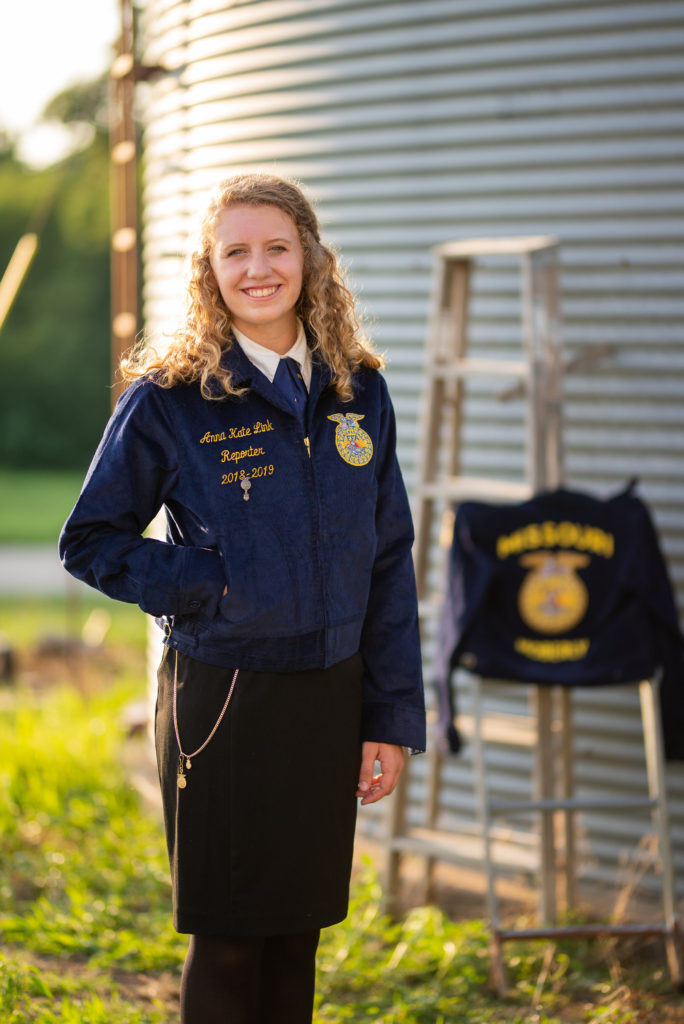

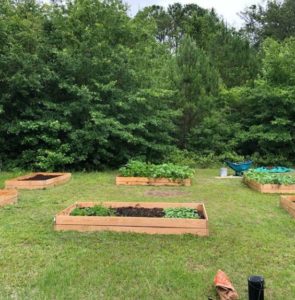
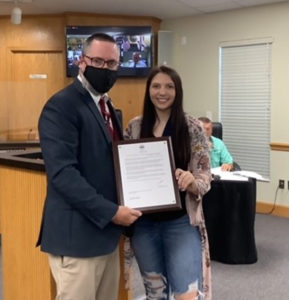
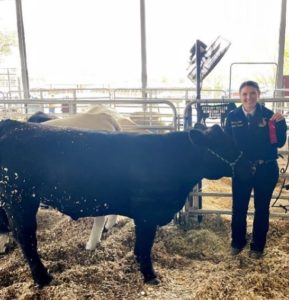
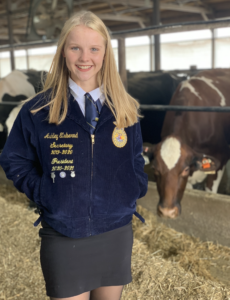
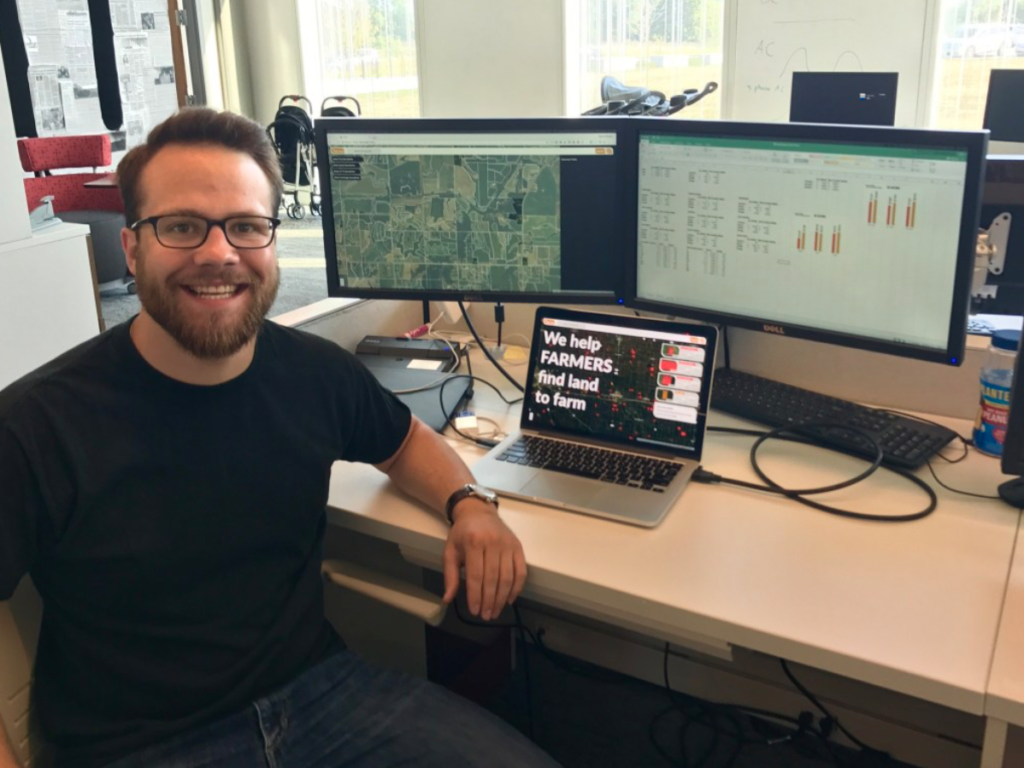
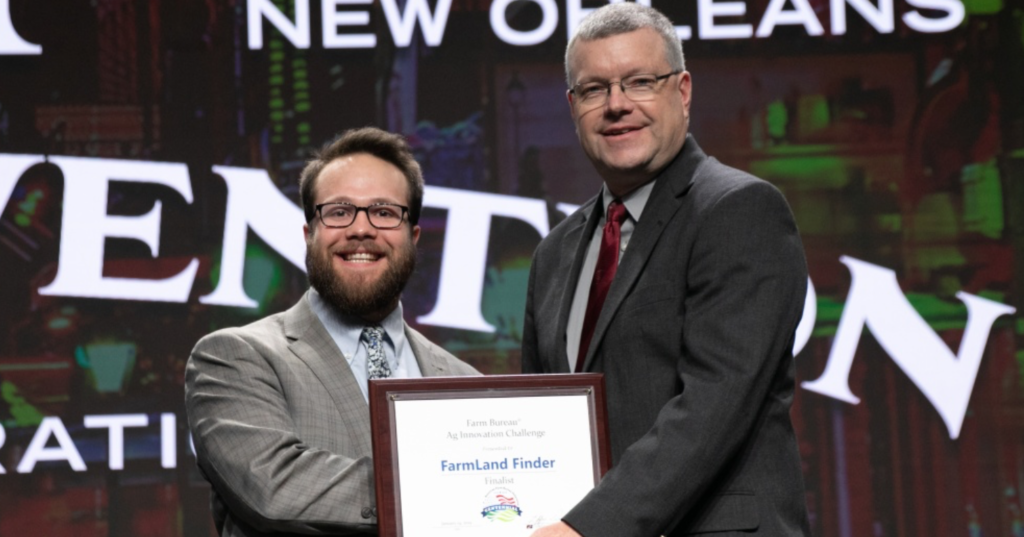
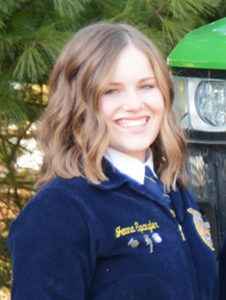

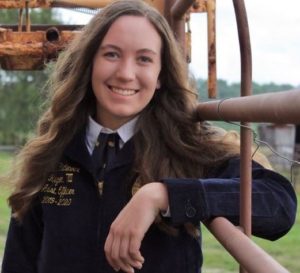

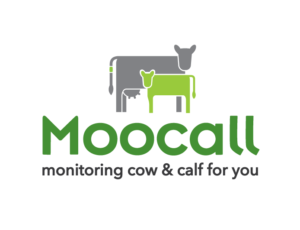
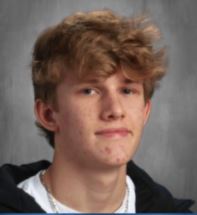
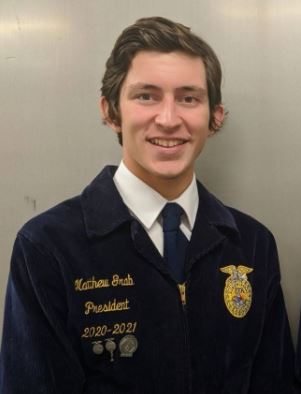
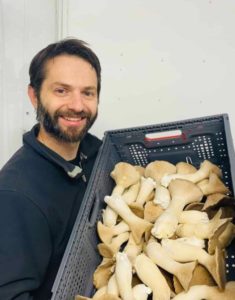
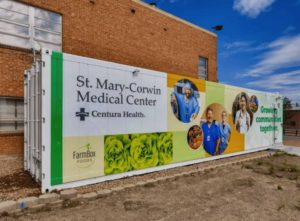
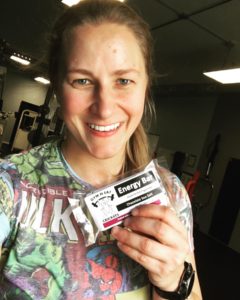
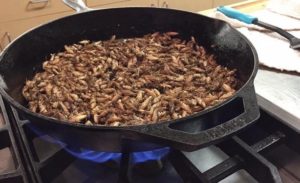 Everything happens for a reason. When Shelby told her parents of her desire to return to Iowa and take up farming her dad imparted some hard-earned farming wisdom. He told her that if this was the life that she wanted she needed to find some sort of niche that would create income for her, apart from rising and falling commodity prices. Shelby gave this some thought and came up with the idea of cricket production for human consumption. Within 9 days of research and planning "Gym-N-Eat Crickets" was born.
Everything happens for a reason. When Shelby told her parents of her desire to return to Iowa and take up farming her dad imparted some hard-earned farming wisdom. He told her that if this was the life that she wanted she needed to find some sort of niche that would create income for her, apart from rising and falling commodity prices. Shelby gave this some thought and came up with the idea of cricket production for human consumption. Within 9 days of research and planning "Gym-N-Eat Crickets" was born.